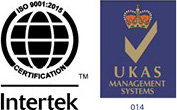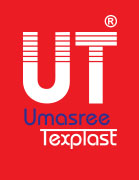9 Key Steps to Choose the Best Big Bag Manufacturers

In industries such as agriculture, construction, chemicals, and logistics, Big Bags—also known as Flexible Intermediate Bulk Containers (FIBCs)—play an indispensable role in handling and transporting bulk materials. Whether you’re dealing with grains, powders, minerals, or plastic granules, choosing the right Big Bag Manufacturer is essential for efficiency, product safety, and cost-effectiveness.
With numerous suppliers in the market, it can be challenging to identify the most reliable partner. This guide highlights the key steps to choose the best big bag manufacturers, ensuring your business receives durable, high-quality, and compliant packaging solutions.
Understanding the Importance of Choosing the Right Big Bag Manufacturer
Before diving into the selection steps, it’s important to recognize why choosing the right big bag manufacturer is critical:
· Ensures consistent product quality and safety
· Supports bulk logistics with customized solutions
· Complies with international standards for handling sensitive or hazardous materials
· Offers better value through durability and reusability
· Reduces risks related to spillage, contamination, or transportation damage
Whether you are a first-time buyer or looking to switch vendors, following a structured selection approach will help you avoid supply chain disruptions and ensure peace of mind.
Step 1: Define Your Requirements
The first step is to have a clear understanding of your application and the materials you intend to store or transport in big bags. Key considerations include:
· Weight capacity (500 kg to 2000 kg or more)
· Type of material (powdery, granular, moist, hazardous, food-grade)
· Bag features (coated/uncoated, ventilated, conductive, UN certified)
· Filling and discharge system (spouts, skirts, or open tops)
· Handling mechanism (1-loop, 2-loop, or 4-loop lifting systems)
Knowing these specifications helps you shortlist big bag manufacturers who can deliver customized FIBC solutions.
Step 2: Verify Industry Experience and Manufacturing Capabilities
When evaluating big bag manufacturers, experience matters. A company with years of industry knowledge is more likely to provide:
· In-depth material expertise
· Better understanding of industrial standards
· Well-developed quality assurance processes
· Proven customer satisfaction record
Check the manufacturer’s factory setup, production capacity, types of FIBCs they manufacture (Type A, B, C, D), and their ability to scale production according to your demand.
Tip: Leading big bag manufacturers often have ISO certifications and dedicated R&D teams to innovate and maintain product consistency.
Step 3: Assess Compliance with Safety and Quality Standards
FIBCs are subject to international safety regulations, especially when used to transport hazardous or food-grade products. Always ask whether the manufacturer adheres to:
· ISO standard for bulk packaging
· UN certification for transporting dangerous goods
· FDA compliance for food-grade packaging
A trustworthy manufacturer will offer technical datasheets, test reports, and certifications that prove the bags meet global safety and performance standards.
Step 4: Evaluate Product Customization and Variety
Top big bag manufacturers offer a wide range of bag types and configurations tailored to different industries. These may include:
· Standard 4-loop big bags
· Single-loop and two-loop big bags
· Ventilated bags for fresh produce
· Conductive (Type C) or static-dissipative (Type D) FIBCs
· UN-certified bags for hazardous goods
· And more big bags
Customization plays a key role in ensuring that the big bags perform optimally under your specific conditions. Check if the manufacturer provides tailored sizes, printing, accessories, and branding options.
Step 5: Inspect Quality Control and Testing Processes
A professional big bag manufacturer will have a dedicated quality control (QC) system for all stages of production & an In-house Quality process control, in compliance with ISO 9001.
- Stacking test
- Drop test
- Topple test
- Righting test
- Tear test
- Vibration test
These tests ensure that the big bags are safe, durable, and capable of multiple uses if required. Always request details about the manufacturer’s QC procedures and how frequently their bags are tested.
Step 6: Check Supply Chain and Delivery Reliability
A dependable supply chain is vital to prevent production delays on your end. Assess the manufacturer’s:
· Lead times and delivery capabilities
· Geographic export reach
· Raw material sourcing strategy
· Warehouse and inventory management
Choose a supplier who is transparent about timelines and can scale up production during seasonal spikes or urgent bulk orders.
Step 7: Read Client Testimonials and Case Studies
Client feedback is a great indicator of a manufacturer’s reliability. Look for:
· Testimonials from industries similar to yours
· Case studies that highlight performance
· Third-party reviews or ratings
These can reveal important insights about the company’s customer service, after-sales support, and how well they handle quality issues or replacements.
Step 8: Evaluate Pricing and Long-Term Value
While pricing is an important factor, it should not be the sole deciding criterion. Remember:
· Cheaper isn’t always better — substandard FIBCs can cause safety risks.
· Compare value-added features such as UV stabilization, printing, or inner liners.
· Consider the manufacturer’s support services, including product development and compliance assistance.
· Work with big bag manufacturers who offer competitive pricing without compromising on quality.
Step 9: Assess Sustainability and Eco-Friendly Practices
With growing emphasis on environmental responsibility, many buyers now prefer FIBC suppliers that offer:
· Recyclable or reusable FIBCs
· Use of recycled polypropylene yarns
· Low-waste and energy-efficient manufacturing practices
· Commitment to circular economy principles
A manufacturer that aligns with your company’s sustainability goals adds long-term brand value.
Conclusion
Choosing the best big bag manufacturer is a strategic decision that impacts your product safety, logistics efficiency, and brand reputation. By following these nine steps—defining your requirements, assessing capabilities, ensuring compliance, and prioritizing quality—you can form a reliable, long-term partnership that meets your packaging needs.
Always opt for manufacturers who innovate, adhere to safety standards, offer customization, and provide consistent after-sales service. A dependable supplier becomes more than a vendor—they become an extension of your supply chain success.
Looking for Reliable Big Bag Manufacturers?
Umasree Texplast is a leading manufacturer and exporter of high-quality Big Bags, offering customized, certified, and cost-effective solutions for global industries. With decades of experience, robust manufacturing capabilities, and a commitment to sustainability, Umasree Texplast ensures your bulk packaging is in expert hands.
Contact Umasree Texplast today to discuss your big bag requirements or request a free quote.





